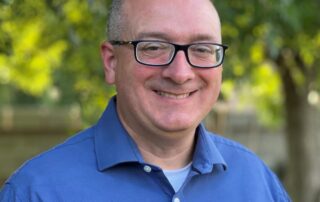Associations, Organizations, Educational and Research Institutions
California Strawberry Commission Fills Two Key Positions
Courtesy of the California Strawberry Commission
By Jeff Cardinale
New VP of Research and Director of Communications join the Commission
– The California Strawberry Commission (CSC) is announcing two key hires to advance the industry through research and communications.
Dr. William “Bill” Turechek joins the CSC as the new Vice President of Research. Bill joins the CSC after serving since 2006 as a Research Plant Pathologist at the USDA-ARS Horticultural Research Laboratory in Fort Pierce, Florida, where he worked on epidemiology and management of strawberry and vegetable diseases.
Dr. Turechek has over 100 peer-reviewed research articles and book chapters, has raised tens of millions of dollars in extramural funding, and has served as senior editor for the journals Plant Disease and Phytopathology. His areas of expertise include plant disease epidemiology, disease management, and statistics, with an emphasis on diseases that occur in strawberry and annual vegetable production.
“We are excited to have Dr. Turechek join the California Strawberry Commission and utilize his expertise to aid the 400+ family-owned strawberry farming operations in California,” said Rick Tomlinson, California Strawberry Commission President.
“I am honored to join the California Strawberry Commission and I am looking forward to meeting and getting to know the many growers, shippers, and processors in the California strawberry industry. As the Vice President of Research, one of my primary goals is to work closely with the industry to identify key research needs, and then make it happen. In leading the Commission’s research efforts, I hope to empower California strawberry growers with the latest research and data to help them make the informed decisions that will advance strawberry farming in California” said Dr. William Turechek, California Strawberry Commission Vice President of Research.
The California Strawberry Commission also recently named Jeff Cardinale as the new Director of Communications.
Among his duties, Cardinale will lead positive marketing message campaigns highlighting the importance of the California strawberries and the industry itself to the local communities where strawberries are grown as well as to local, state, and national stakeholders. Cardinale will also handle media relations and crisis communications. Cardinale led the commission’s response to the January and March flooding events.
“On behalf of the 400+ California strawberry growers, shippers, and processors, I am excited to join the California Strawberry Commission. There are incredible stories to tell about the California strawberry industry, from the remarkable opportunities for field workers becoming farm owners, to the fact that 97 cents of every California strawberry dollar goes right back into the community. These are just a few of the many great things happening in the California strawberry industry and I look forward to showcasing those stories,” said Jeff Cardinale, California Strawberry Commission Director of Communications.
“We are delighted to have Jeff on board. He brings nearly 10 years of agriculture communications experience as well as extensive work in proactive and crisis communications. The commission is confident Jeff will serve the industry well,” said Rick Tomlinson, California Strawberry Commission President.
Prior to his work in agricultural communications, Cardinale served as the Public Information Officer for the Fresno Police Department. Cardinale also has more than 15 years experience in television news management where he won six Emmy Awards for Best Newscast.
As part of the marketing and media relations campaigns, Cardinale plans to introduce new ways of reaching the media, as well as the local strawberry farming communities to stay engaged with the industry.




















